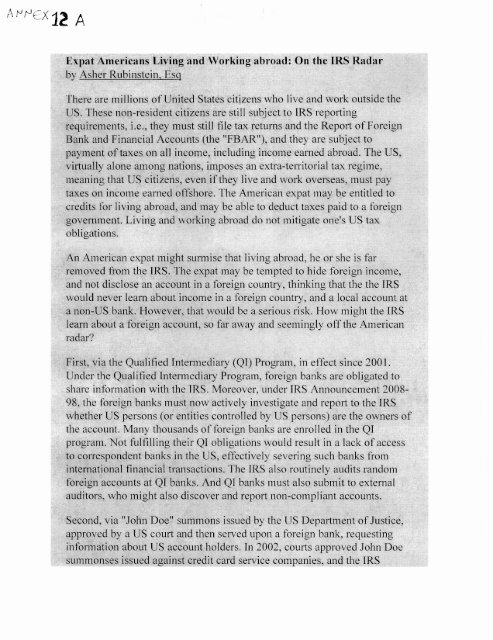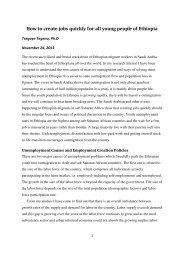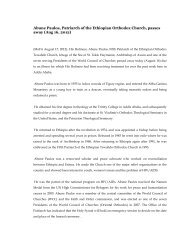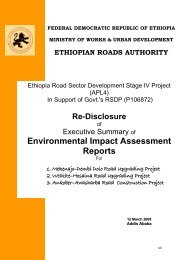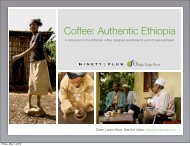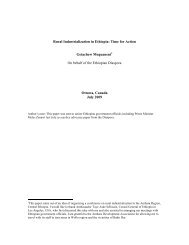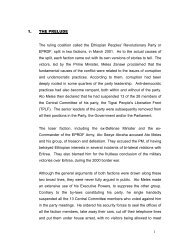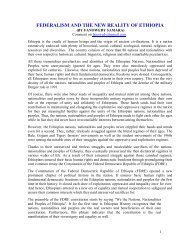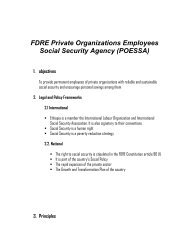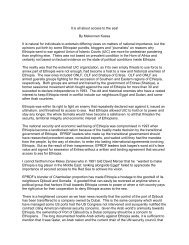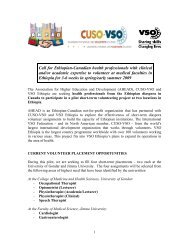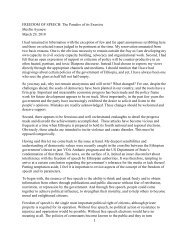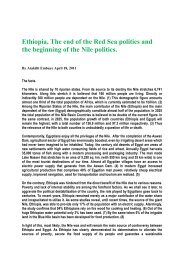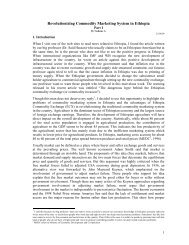Annex - Aiga Forum, an Ethiopian forum for news and views promoting
Annex - Aiga Forum, an Ethiopian forum for news and views promoting
Annex - Aiga Forum, an Ethiopian forum for news and views promoting
Create successful ePaper yourself
Turn your PDF publications into a flip-book with our unique Google optimized e-Paper software.
At Ex 12Expat Americ<strong>an</strong>s Living <strong>an</strong>d Working abroad: On the IRS Radarby Asher Rubinstein, EsqThere are millions of United States citizens who live <strong>an</strong>d work outside theUS. These non-resident citizens are still subject to IRS reportingrequirements, i.e., they must still file tax returns <strong>an</strong>d the Report of ForeignB<strong>an</strong>k <strong>an</strong>d Fin<strong>an</strong>cial Accounts (the "FBAR"), <strong>an</strong>d they are subject topayment of taxes on all income, including income earned abroad. The US,virtually alone among nations, imposes <strong>an</strong> extra-territorial tax regime,me<strong>an</strong>ing that US citizens, even if they live <strong>an</strong>d work overseas, must paytaxes on income earned offshore. The Americ<strong>an</strong> expat may be entitled tocredits <strong>for</strong> living abroad, <strong>an</strong>d may be able to deduct taxes paid to a <strong>for</strong>eigngovernment. Living <strong>an</strong>d working abroad do not mitigate one's US taxobligations.An Americ<strong>an</strong> expat might surmise that living abroad, he or she is farremoved from the IRS. The expat may be tempted to hide <strong>for</strong>eign income,<strong>an</strong>d not disclose <strong>an</strong> account in a <strong>for</strong>eign country, thinking that the the IRSwould never learn about income in a <strong>for</strong>eign country, <strong>an</strong>d a local account ata non-US b<strong>an</strong>k. However, that would be a serious risk. How might the IRSlearn about a <strong>for</strong>eign account, so far away <strong>an</strong>d seemingly off the Americ<strong>an</strong>radar?First, via the Qualified Intermediary (QI) Program, in effect since 2001.Under the Qualified Intermediary Program, <strong>for</strong>eign b<strong>an</strong>ks are obligated toshare in<strong>for</strong>mation with the IRS. Moreover, under IRS Announcement 2008-98, the <strong>for</strong>eign b<strong>an</strong>ks must now actively investigate <strong>an</strong>d report to the IRSwhether US persons (or entities controlled by US persons) are the owners ofthe account. M<strong>an</strong>y thous<strong>an</strong>ds of <strong>for</strong>eign b<strong>an</strong>ks are enrolled in the QIprogram. Not fulfilling their QI obligations would result in a lack of accessto correspondent b<strong>an</strong>ks in the US, effectively severing such b<strong>an</strong>ks frominternational fin<strong>an</strong>cial tr<strong>an</strong>sactions. The IRS also routinely audits r<strong>an</strong>dom<strong>for</strong>eign accounts at QI b<strong>an</strong>ks. And QI b<strong>an</strong>ks must also submit to externalauditors, who might also discover <strong>an</strong>d report non-compli<strong>an</strong>t accounts.Second, via "John Doe" summons issued by the US Department of Justice,approved by a US court <strong>an</strong>d then served upon a <strong>for</strong>eign b<strong>an</strong>k, requestingin<strong>for</strong>mation about US account holders. In 2002, courts approved John Doesummonses issued against credit card service comp<strong>an</strong>ies, <strong>an</strong>d the IRS


